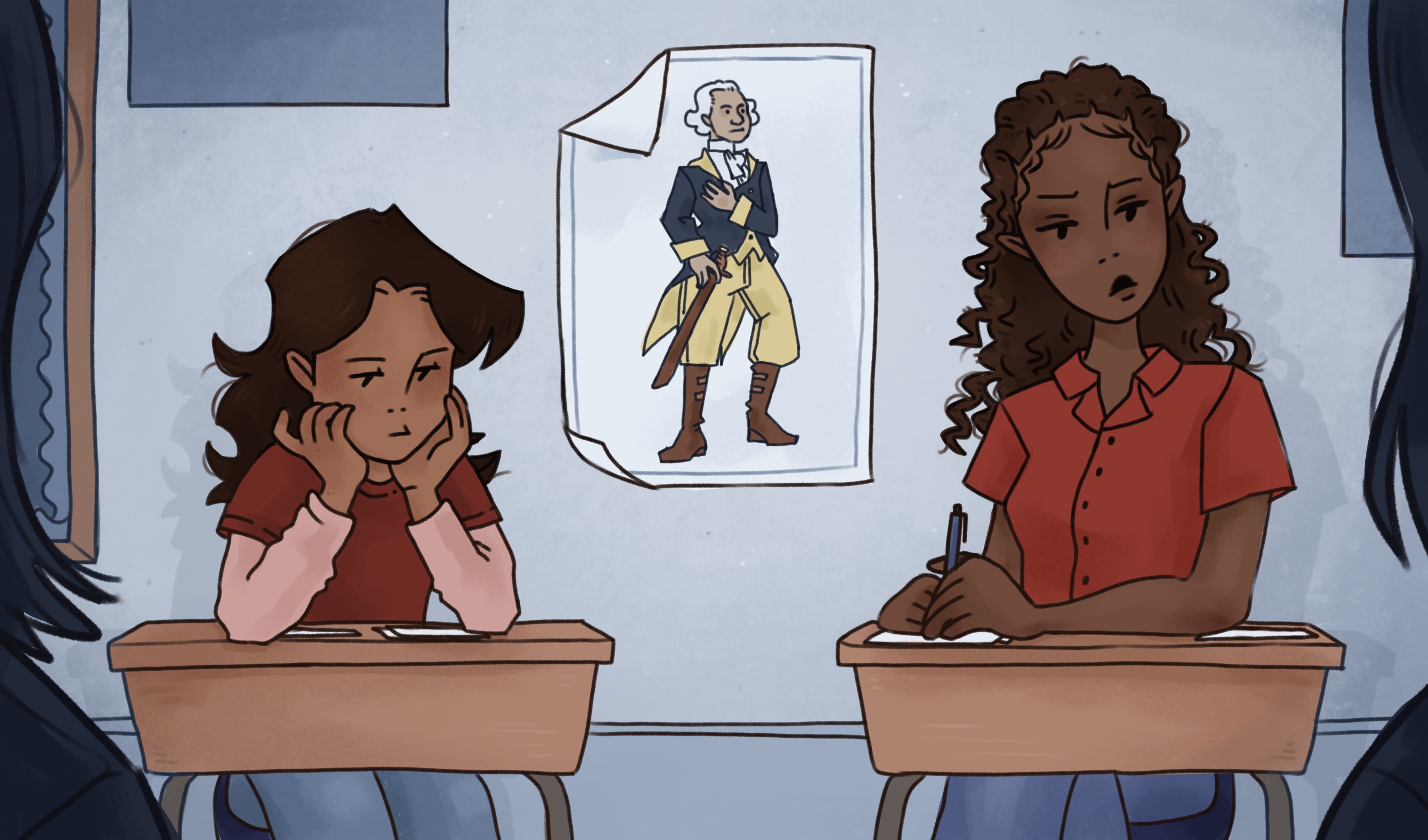Students across the United States engage in mundane forms of patriotism every day. In acts of civic participation—attending protests and marches, registering voters, volunteering at clinics, and building campus coalitions—students demonstrate their dedication to democratic engagement. However, there is a disconnect between student participation in patriotism and the ritualistic performances of patriotism expected of them by their government. Rather than being embraced as fully formed participants in democracy, students are treated as subjects in need of explicit guidance. Of these performances, none is more striking than the Pledge of Allegiance. The Pledge was designed as a reactionary ritual responding to anti-immigrant sentiment with a nativist assertion of national identity: “One Country! One Language! One Flag!” In the 21st century, the Pledge and other mandated rituals ring hollow and performative; the contrast between government-imposed patriotism and students’ active engagement demonstrates that authentic patriotism emerges from civic participation, not ritual repetition.
Schools have again become sites for nationalistic displays and curriculum restriction, with conservative policies such as the Promoting American Patriotism in Our Schools Act (H.R. 1351) seeking to promote patriotism through ritual mandates. This bill would not only institute the Pledge as mandatory for students and staff alike (minus religious exemptions) but would also shape and restrict school curricula. In other words, this bill would enable the state to dictate the content and form of a mandated nationalist education. This narrowing of classroom discourse enforces a vision of patriotism embodied by conformity rather than expressions of individual liberty and engagement in politics.
Yet, despite these mandates, classrooms remain one of the most poignant spaces to cultivate a deeper, more democratic patriotism. As a study on students’ attitudes toward patriotism in the classroom indicated, “students’ critiques did not exist in parallel or in contradiction to their patriotic commitments. Rather the two were integrated.” Candid discussions about injustice serve to foster community and encourage the kind of “critical democratic patriotism” that students themselves advocate for in and out of the classroom. Honest and critical teaching and learning enable accountability, productive discourse, and authentic national commitments. In contrast, the restrictive and ritualistic policies that the Trump administration intends to pursue polarize individuals and suppress the democratic principles fought for by the original patriots.
Recent civic engagement—most notably the widely covered pro-Palestinian student protests across college campuses—embodies student-driven, authentic patriotism. These expressions are labeled by the Trump administration as uniformly violent, destructive, and anti-American. However, peaceful demonstrations have a long history in the United States. Take, for instance, the student protests against the Vietnam War during the Cold War era. At Kent State University, the Ohio National Guard was deployed, fully armed, and killed four students. This harsh response against student speech echoes the current government crackdown on domestic and international students protesting for peace in the Middle East. The insistence on quashing criticism and public outcry exposes a national hypocrisy: In an effort to preserve a placid image of democracy, the state suppresses the expression of democratic principles.
The contrast between student engagement and mandated ritual highlights the waning significance of the Pledge in modern life. This ritual no longer carries the weight its architects intended—what was meant to cultivate national devotion has become performative, a recitation that feels empty and persists only due to precedent. For positive American patriotism to hold sincere meaning, it must diverge from compulsion and rote repetition. This is not to say that all rituals that manifest in the form of patriotic traditions are ineffective, but when rituals are co-opted and manipulated by the state—imposed as instruments of control and indoctrination within the education system for ideological purposes—they become meaningless and even destructive to the very patriotic and democratic principles they are marketed as instilling. What was designed to inspire civic virtue has now morphed into a mandate that fosters resentment and a distorted understanding of patriotism as unquestioning compliance. When students express patriotism through authentic activism, they reclaim its purpose by demonstrating that genuine civic engagement must not be mandated but fostered collaboratively.
The Pledge, historically envisioned as an exclusionary nation-building oath, now reveals a fundamental tension: Policymakers cling to patriotic ritual as students increasingly reject it. Politicians must change how they understand patriotism among young Americans. Patriotism cannot exist as mandated by the state and enforced through policy. Instead, to encourage civic pride among young people, we must trade ritualistic rigidity for dynamic inclusion and active participation within our communities. In rejecting this rigidity, young people—who are so often dismissed as apathetic—demonstrate their ability to redefine patriotism on their own terms and leave behind a legacy of participation rather than performance.
